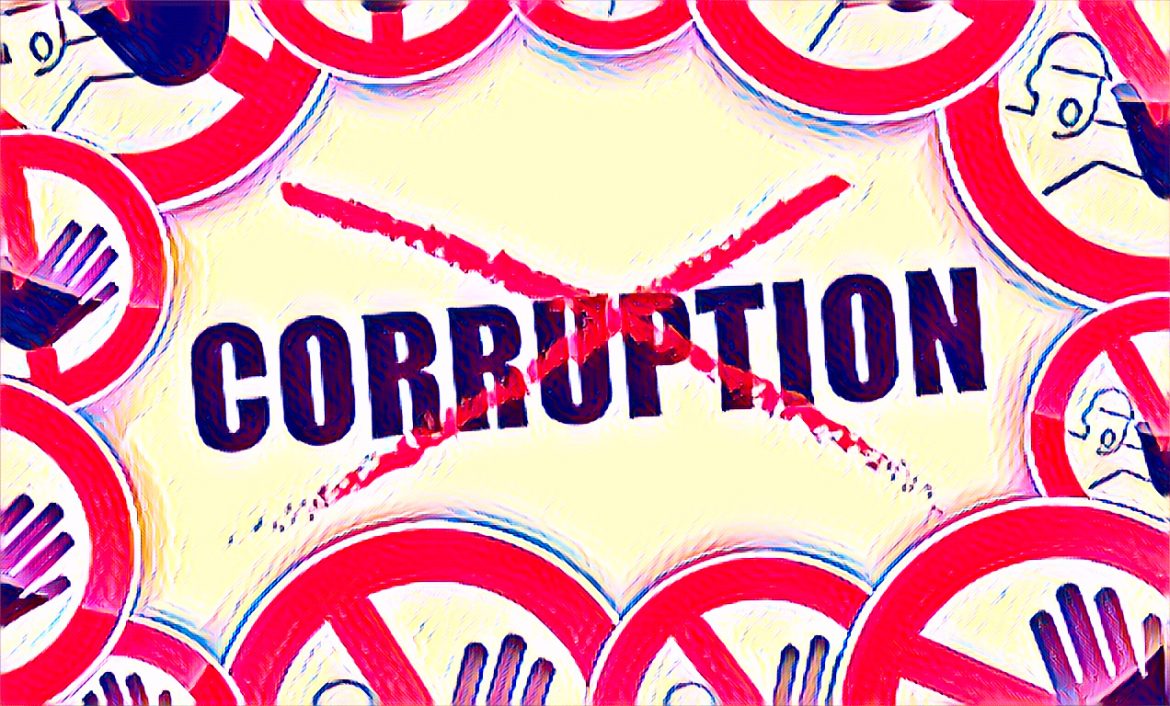KEY POINTS
- Corruption costs Nigeria $18 billion annually, draining 3.8% of GDP.
- Institutional reforms and digital tools can improve transparency.
- Insights from Rwanda and Botswana inspire strategies.
Corruption has for a long time served as a major obstacle to Nigeria’s progress. It depletes resources, diminishes trust, and weakens the efficiency of governmental institutions.
According to Transparency International, “corruption is the abuse of entrusted power for private gain.”
The definition indicates that corruption is not only about monetary or material gains but misuse of authority or influence for any personal gain.
The United Nations reports that annually, around US$1 trillion is spent on bribes and US$2.6 trillion is misappropriated through corruption accounting for 5 percent of annual global GDP.
Additionally, in developing nations, the funds lost to corruption are estimated to be tenfold the total of the overall Official Development Assistance.
As per Transparency International, Nigeria was placed 145th out of 180 nations in the 2023 Corruption Perception Index, highlighting the widespread nature of the issue.
This ranking underscores the rampant nature of corruption in the country, as the closer to the bottom it is, the greater the corruption.
According to Adedeji Adeniran, the Director of Research at the Centre for the Study of the Economies of Africa (CSEA) revealed that the proportion of GDP allocated to procurement in Nigeria fluctuates over time, but it is estimated to be between 10-25 percent.
Furthermore, the Anti-Corruption Agencies of Nigeria (which includes all agencies tasked with investigating corruption and financial offenses) estimate that Nigeria loses $18 billion annually to corruption and financial crimes from the total spent on procurement.
“This is an astonishing figure, representing 3.8 percent of Nigeria’s GDP in 2022, and it has significant negative consequences for pro-poor growth and development,” he stated.
However, the injection of significant financial resources and concerted efforts by institutions can potentially change Nigeria’s battle against corruption.
Notable billion-dollar corruption cases in Nigeria
Dasuki arms deal scandal
In 2015, ex-National Security Adviser (NSA) Sambo Dasuki faced allegations of misappropriating $2.1 billion designated for weapons purchases to combat Boko Haram militants.
Rather than acquiring military gear, the money was reportedly allocated to political allies and associates, weakening Nigeria’s security framework.
This scandal underscored the misappropriation of defense funds and the necessity for clear procurement procedures.
Malabu oil scandal
The Malabu Oil scandal concerned the deceitful distribution of the Oil Prospecting License (OPL) 245, among Nigeria’s most valuable oil blocks, estimated at over $1.3 billion.
The block was controversially granted to Malabu Oil and Gas, a firm associated with former Petroleum Minister Dan Etete.
The money meant for the Nigerian government was reportedly diverted through complex global transactions, resulting in numerous legal cases both in Nigeria and overseas.
Diezani Alison-Madueke’s $20 billion oil revenue scandal
Diezani Alison-Madueke, ex-Minister of Petroleum Resources in Nigeria, was accused of managing the disappearance of $20 billion in oil earnings while in office.
Accounts revealed extensive corruption in oil licensing agreements, crude oil exchanges, and various financial discrepancies.
Global inquiries have similarly associated her with money laundering and the purchase of luxury assets in the U.S. and the UK.
The importance of institutions in fighting corruption
Robust institutions serve as the foundation of a working democracy and a powerful tool against corruption (World Bank, 2023).
They establish mechanisms for checks and balances, uphold the rule of law, and guarantee accountability within both the public and private sectors.
In Nigeria, though, entities such as the judiciary, anti-corruption bodies, and law enforcement frequently face challenges from political meddling, insufficient funding, and skill deficiencies.
Full autonomy and investing substantial financial resources to bolster these institutions could be transformative.
Tactical investments to develop robust institutions
Digital transformation
Investing in digital technologies can improve transparency and accountability within public institutions.
For example, e-governance systems can streamline procedures, minimizing human involvement and chances for corruption.
Systems such as the Treasury Single Account (TSA) have enhanced financial management in Nigeria by merging government revenues into one account. Action calls for:
- Broaden the application of blockchain technology for monitoring public spending.
- Establish digital identity systems to reduce ghost employees and fraud.
Enhancing anti-corruption bodies
Nigeria’s anti-corruption bodies, including the Economic and Financial Crimes Commission (EFCC) and the Independent Corrupt Practices Commission (ICPC), need sufficient funding and independence to function properly. A significant investment could:
- Offer sophisticated investigative resources and training.
- Implement whistleblower protection initiatives to promote the reporting of corrupt activities.
- Promote global partnerships to monitor unlawful financial transactions.
Judicial reforms
A self-sufficient and effective judiciary is essential for fighting corruption. Resources need to be distributed to:
- Enhance court facilities and case management processes.
- Educate judges and legal professionals about anti-corruption legislation and procedures.
- Impose severe consequences for judicial corruption to maintain the integrity of the legal system.
Civic education and advocacy
Enabling citizens to insist on responsibility is a fundamental aspect of institutional reform.
Civic education initiatives can enhance understanding of the effects of corruption and motivate active involvement in governance. Suggested measures include:
- Support grassroots groups dedicated to fighting corruption.
- Back media efforts that reveal corruption and encourage transparency.
- Enact educational programs that focus on moral leadership and community engagement.
Insights from other African countries
Nations such as Rwanda and Botswana have shown that establishing robust institutions can greatly lessen corruption.
Rwanda’s implementation of e-governance and strict accountability practices has established it as one of the least corrupt countries in Africa.
Botswana prioritizes judicial independence and clear resource management, consistently placing among the top in Africa for corruption rankings. Its Directorate on Corruption and Economic Crime (DCEC) is a benchmark for other nations. Nigeria can get motivation from these countries to customize its anti-corruption approaches to local context.


